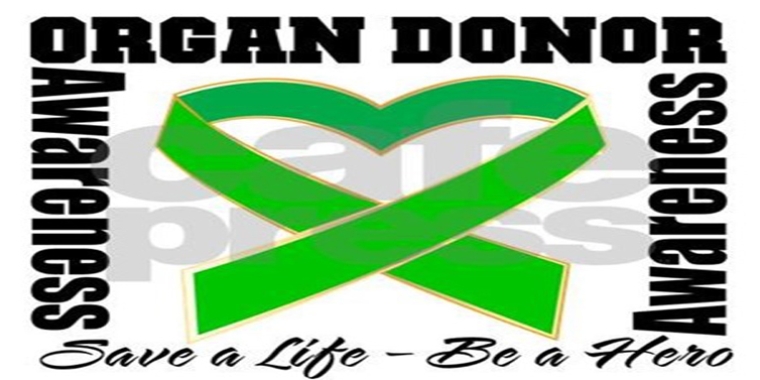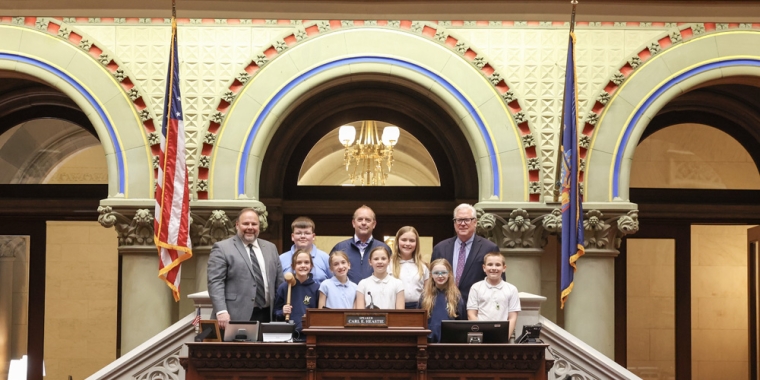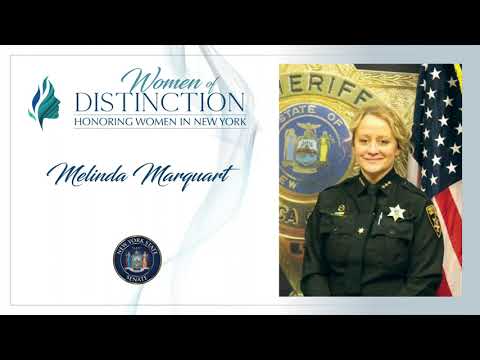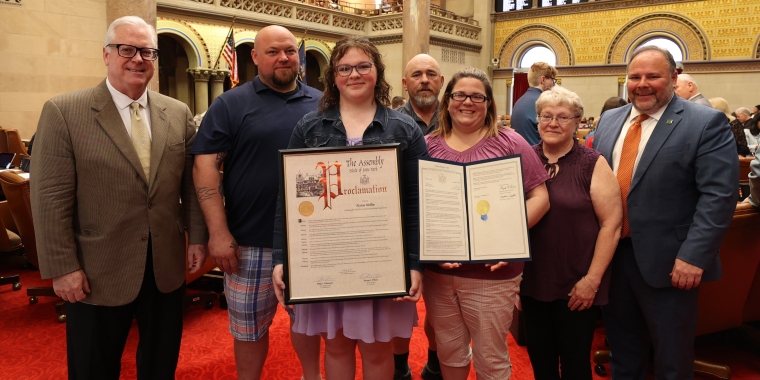
‘Lauren's Law’ extension gets final legislative approval in ongoing effort to boost organ and tissue donations ~ Legislation now goes to the governor to be signed into law

The State Legislature has given final legislative approval to extend "Lauren's Law."
Albany, N.Y., May 18—The State Assembly today gave final legislative approval to legislation previously approved by the Senate and co-sponsored by Senator Tom O’Mara (R,C,I-Big Flats) to extend an important state law first enacted four years ago aimed at increasing organ and tissue donations in New York State.
“Encouraging organ and tissue donation is one of the most important life-saving actions that we can take in New York State, and Lauren’s Law has been and will continue to be an important part of this ongoing effort,” said O’Mara, who said that the Senate first approved the legislation in February.
If signed into law by Governor Andrew Cuomo, which is expected, the legislation (S6228/A8594) will enact a four-year extension, until 2020, of what’s commonly known as “Lauren’s Law” in honor of 12-year-old heart transplant survivor Lauren Shields of Stony Point, New York (Rockland County). Lauren received her heart transplant in 2009. She and her family were leading advocates for the law’s initial enactment in 2012 and are at the Capitol today pushing for its extension. Lauren’s Law is set to expire this October.
Lauren’s Law prohibits a driver's license application from being processed unless the organ donation section is filled out. Applicants have to check a box stating “yes” or “skip this question.” Prior to the law’s enactment, filling out the organ donation section on the application was optional.
According to LiveOnNy (http://liveonny.org/), formerly the New York Organ Donor Network, over 10,000 people are waiting for organ transplants in the New York State and another name is added to the state's organ transplant waiting list every 2½ hours.
Supporters of the legislation project that the law's renewal will result in 560,000 new organ donor registrees over the next four years.
O’Mara also co-sponsors legislation (S6528/A8661), which was unanimously approved by the Senate earlier this month, that would make “Lauren’s Law” permanent. That legislation remains in the Assembly Health Committee.
The Senate also recently approved the following organ donor-related measures, all of which are co-sponsored by O’Mara:
> S.7013 to help medical transport teams operate within their necessary and sensitive time frames. The legislation would add human organ delivery vehicles to the state’s list of authorized emergency vehicles;
> S.7003 to further increase public awareness by educating high school students about organ, tissue, bone marrow, and blood donation. In New York, the current age of consent to register as a bone marrow and organ and tissue donor is 18. The age of consent to donate blood is 17 (or 16 with parental consent). This measure would help high school students make informed decisions when they reach the age of consent by requiring state education officials to develop recommendations for instruction in blood, bone marrow, organ, and tissue donations and the life saving benefits each provide;
> S.5313 to help increase the number of organ and tissue donors by lowering the age of consent for New Yorkers who choose to become a donor. New York is one of only four states in the nation that requires an individual be 18 or older to enroll in an organ and tissue donor registry. This leaves young people without a mechanism to document their consent to donate and puts parents in the difficult situation of having to assume what their teenage child would have wanted should a tragedy occur. This legislation will give New Yorkers aged 16 or older who wish to consent to donation the ability to enroll in the state’s Donate Life Registry. However, in the event that the young person may be considered for organ, eye, or tissue donation, the parents of that individual will be notified and given the final authorization for donation to take place; and
> S.6952 would provide an additional opportunity for New Yorkers to document their decision to enroll as an organ and tissue donor. All applicants for health insurance offered through the state health benefit exchange would be provided space during the application process to register for the Donate Life Registry for organ, eye, and tissue donations



